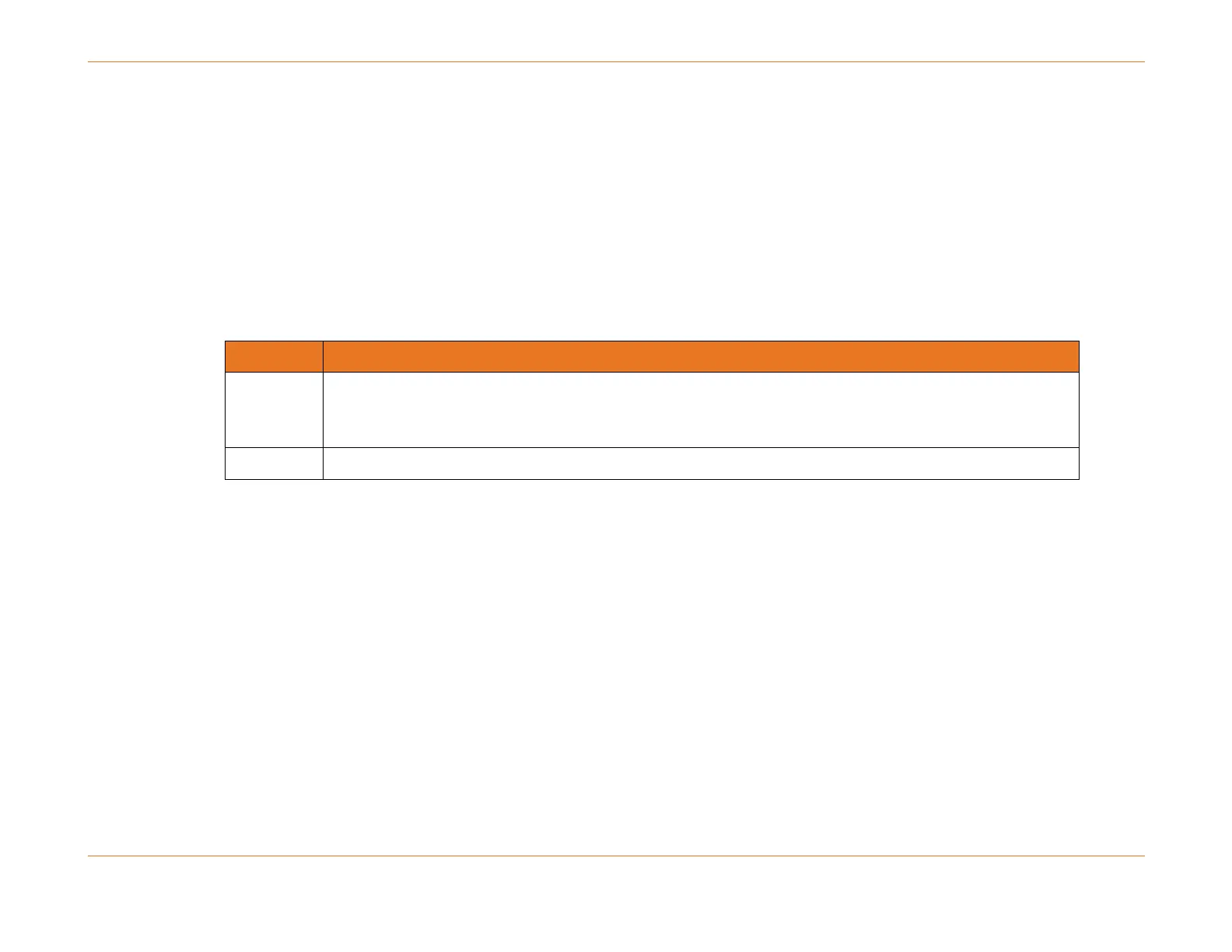Chapter 45: CLI Overview
STANDARD Revision 1.0 C4® CMTS Release 8.3 User Guide
© 2016 ARRIS Enterprises LLC. All Rights Reserved. 1119
ARRIS.*
When you use an asterisk (*), it means none, one, or more of the previous character in the pattern. In the example, the
asterisk is preceded with a period, which means none, one, or more of any character.
Multipliers
You can create more complex regular expressions that instruct the software to match multiple occurrences of a specified
expression. The following table lists special characters that specify "multiples" of an expression.
Table 145. Special Characters Used as Multipliers
The asterisk matches any number (or none) of the single character that immediately precedes it. The
preceding character can also be a regular expression. E.g., since . (dot) means any character, then .*
means "match any number of any character."
The plus matches 1 or more sequences of the preceding regular expression
Examples:
To match any number of occurrences of the letter m, including none:
m*
To require that at least one letter m be in the string to be matched:
m+
By enclosing the pattern in parentheses you can use multipliers with multiple-character patterns. The parentheses ()
characters are used to see this pattern as one character. In the following example, the pattern matches any number of the
multiple-character string mn:
(mn)*
Some useful example patterns that might be helpful:
Any IP address = [0-9]+\.[0-9]+\.[0-9]+\.[0-9]+
Any MAC address = [0-9a-f][0-9a-f][0-9a-f][0-9a-f]\.[0-9a-f]
